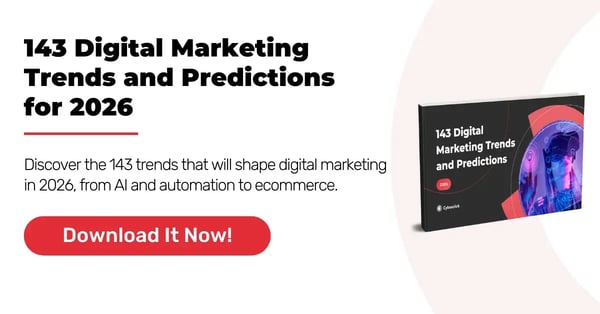Word-of-mouth marketing (WOMM) is a strategy where consumers actively share their positive experiences with a brand, product, or service with others, thereby influencing their purchase decisions. This type of marketing is rooted in trust and authenticity, as people tend to believe recommendations from friends, family, or even online reviews more than traditional advertising.
WOMM can happen organically, where satisfied customers naturally share their experiences, or it can be incentivized or facilitated by brands through strategic campaigns. The key to successful word-of-mouth marketing lies in creating an exceptional customer experience that people want to talk about and share.

The Power of Word-of-Mouth Marketing
The impact of word-of-mouth marketing is immense. According to Nielson, 92% of consumers trust recommendations from people they know over any other form of advertising. Moreover, a study from Sideqik shows that 7 out of 10 people trust influencer recommendations as much as those coming from their friends and family. These numbers illustrate that WOMM is not only effective but also critical for long-term business success.
The reason word-of-mouth is so powerful is simple: it’s based on trust. When someone we know and/or trust recommends a product or service, we’re more likely to believe in its value and quality. This trust translates into higher conversion rates, as potential customers are more likely to follow through on a recommendation from a trusted source than they are from a paid advertisement.
How Word-of-Mouth Marketing Works
Word-of-mouth marketing works by leveraging social connections and consumer experiences to spread a brand’s message.
Exceptional Customer Experience
The foundation of any successful WOMM campaign is an outstanding product or service. When customers have a positive experience, they are more likely to share it with others. This can include excellent customer service, high-quality products, a unique brand story, or an innovative solution to a common problem.
Customer Satisfaction and Delight
Beyond just meeting customer expectations, this kind of marketing is driven by exceeding them. When a brand goes above and beyond, it creates a memorable experience that customers want to share. This could be through surprise perks, personalized service, or simply delivering more value than expected. Focus on delivering exceptional value: when customers are impressed, they’re more likely to talk about it.
Natural Conversations
Once a customer has a positive experience, they are likely to talk about it naturally in conversations with friends, family, or colleagues. This could happen in person, through social media, or via online reviews. These organic conversations are the core of word-of-mouth marketing.
Amplification Through Social Media
As mentioned above, and given today’s environment, many of these natural conversations happen via digital channels. Social media plays a significant role in amplifying these conversations and transforming them into marketing: a single positive mention on a platform like TikTok, Instagram, or Facebook, when amplified, can reach hundreds or thousands of people, far beyond the original customer’s immediate circle.
Influence of Online Reviews and Testimonials
Online reviews and testimonials are modern-day word-of-mouth marketing. Potential customers often read reviews before making a purchase decision, and positive feedback can significantly sway their choice. Encouraging satisfied customers to leave reviews is a powerful way to boost WOMM.
Ways to Encourage Word-of-Mouth Marketing
While word-of-mouth marketing can happen organically, there are also specific strategies that brands can use to encourage and amplify and encourage it.
Referral Programs
Referral programs incentivize customers to share a brand with others by offering rewards, such as discounts or free products, for each new customer they bring in. This strategy not only encourages word-of-mouth but also tracks and measures its impact, as well as having a direct impact on conversions.
Influencer Marketing
Influencer marketing is the modern extension of word-of-mouth marketing. Brands partner with influencers who have large, engaged follower communities to promote their products. Since influencers are trusted by their audience, their endorsements carry significant weight and can drive substantial awareness, as well as potential sales or conversions.
User-Generated Content (UGC)
User-generated content involves customers creating and sharing content related to a brand, such as photos, videos, or testimonials. Brands can encourage UGC by hosting contests, featuring customer content on their social media channels, or simply asking customers to share their experiences.
Brand Evangelists
Brand evangelists are loyal customers who are passionate about a brand and actively promote it to others. Brands can nurture these relationships by recognizing and rewarding these customers, creating a community around the brand, and encouraging them to share their stories.
Measuring the Impact of Word-of-Mouth Marketing
Measuring the impact of word-of-mouth marketing can be challenging, but it’s essential for understanding its effectiveness. These are some of the things that can be tracked in order to measure success:
- Referral Traffic: Monitor website traffic from referral sources, including direct referrals from other websites or social media mentions. This can be easily done via the use of UTMs and Google Analytics, for example.
- Customer Feedback and Reviews: Track the number and quality of online reviews, testimonials, and customer feedback. Although it is ideal for feedback to be as positive as possible, negative feedback is also important, and the way a brand deals with it says a lot about their customer service.
- Social Media Mentions: Use social listening tools to track brand mentions, hashtags, and user-generated content on social media. SproutSocial and KeyHole are examples of tools that can be used for this purpose. Social listening can not only help you understand the impact of your efforts but also fuel social media amplification.
- Referral Program Performance: Analyze the success of referral programs by tracking the number of referrals, conversion rates, and the lifetime value of referred customers. These initiatives tend to come at a low cost to the brand, but can be very beneficial when working well.
Word-of-mouth marketing is a powerful and authentic way to build brand awareness, drive sales, and create loyal customers. In a world where trust and authenticity are increasingly important, this type of marketing remains one of the most effective strategies for building lasting customer relationships and driving sustainable growth.
Graduada en Administración de Empresas en Lisboa y un posgrado en Gestión de Productos, Chantal se ha especializado en la Publicidad en Redes Sociales. En Cyberclick lleva la gestión de cuentas y conceptualización de estrategias digitales.
Graduated with a Degree in Business Management in Lisbon and a Postgraduate degree in Product Management. Specialist in Account Management and Digital Marketing strategies, with special focus on Social Ads channel.




.png)

Leave your comment and join the conversation